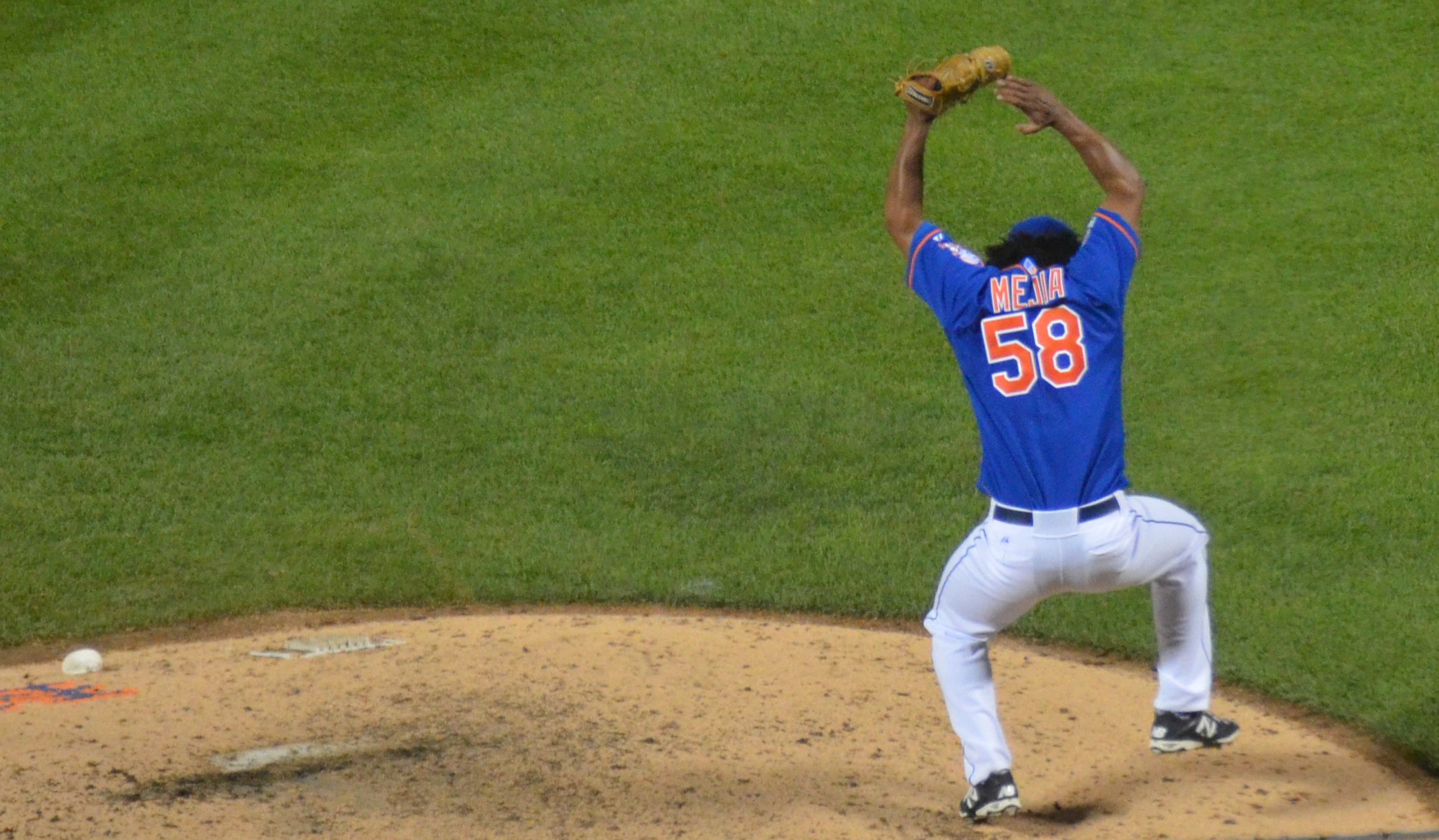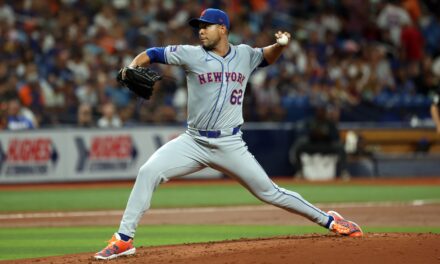
On Saturday, Matt Ehalt of the Record reported that suspended Mets reliever Jenrry Mejia is set to apply for reinstatement into Major League Baseball.
On Feb. 12, 2016, the now 28-year-old was suspended a third time after violating the league’s performance-enhancing drug policy, leading to being banned from baseball. However, Marc Edelman, a tenured law professor at the Zicklin School of Business who writes about legal issues in sports opines that Mejia is likely to pitch for the Mets in 2018.
According to Ehalt, “while it’s a lifetime ban, the language of the suspension allows for it to be reduced after a minimum of two years.”
The two-year window is expected to expire in February around when Spring Training begins, and Ehalt notes there are also signs the former Mets closer is preparing for a potential comeback.
The right-hander has been eligible to apply for reinstatement since one year after the initial ruling, though he would have had to sit out until 2018 regardless of the ruling.
Edelman notes the two-year window as well and touches upon another player who had his ban from baseball overturned, Steve Howe. Howe was suspended from baseball after his seventh positive violation of the league’s recreational drug policy, but Baseball’s then-arbitrator George Nicolau reversed the ruling.
“In overturning a ruling that would have prevented Steve Howe from practicing his profession for the remainder of his life anywhere in the United States, if not the world, Nicolau explained that ‘deterrence, however laudable an objective, should not be achieved at the expense of fairness,'” Edelman wrote. “That principle has since cut at the heart of decisions by pro sports leagues’ outside, neutral arbitrators, across all sports.”
Edelman adds that “A lifetime ban would amount, in essence, to banning Mejia from practicing his trade anywhere in the United States for the remainder of his life.”
“While such a punishment may deter other Major League Baseball players from experimenting with performance-enhancing the drugs, such as suspension may not prove reasonably necessary given that any on-field advantages from using performance-enhancing drugs should have long left Jenrry Mejia’s body and regular PED testing is likely to catch the pitcher if he calls back into engaging in such unscrupulous conduct,” he wrote.

Photo By Clayton Collier
Mejia pitched in a career high 66 games in 2014, notching 28 saves that year, while recording a 3.65 ERA, 3.73 FIP, 1.484 WHIP and 95 ERA+. In 2015 when he was suspended the first two times, he appeared in just seven games, tossing 7.1 scoreless innings.
He pitched 9.1 innings and walked 12 batters in Venezuelan winter ball for Navegantes del Magallanes. His command was reportedly off and his fastball was topping out in the low 90s.
Mejia and the Mets agreed to a one-year contract worth $1.72 million as a formality earlier this week. The pitcher will not receive the money however, because of his three positive drug tests, unless he is in fact reinstated.
“A two year absence from pitching Major League Baseball is a long time, and who knows whether after this layoff, and without access to performance enhancing drugs, Jenrry Mejia still has the skills to make a professional baseball roster,” Edelman said. “However, with all that said, it is more likely than not that Jenrry Mejia will be allowed to don a Mets jersey in Spring Training this season, and that, after a two year suspension, he will receive reinstatement to try to earn a spot on the Mets Major League roster.”
To read the rest of Edelman’s piece, click here.















